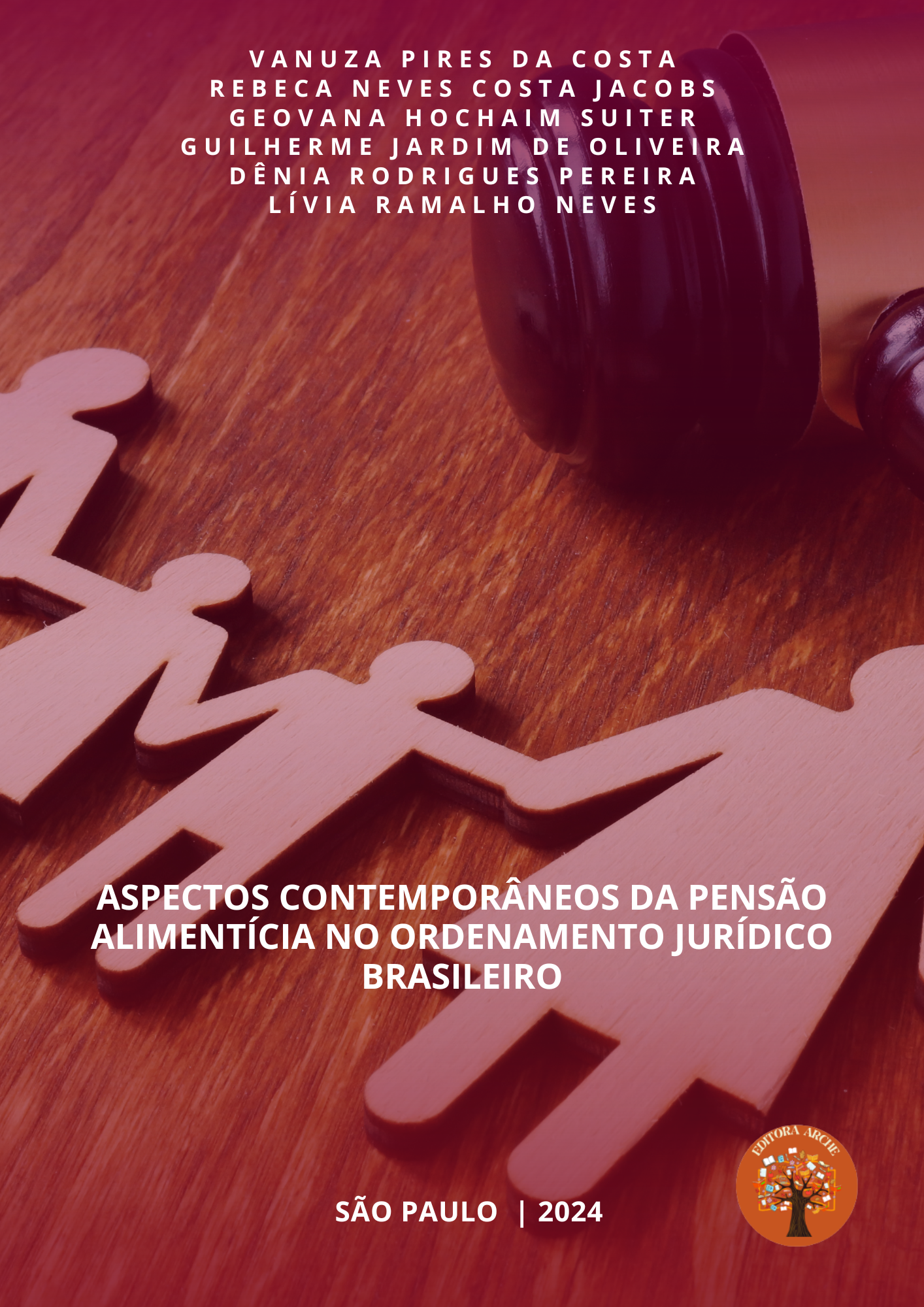CONTEMPORARY ASPECTS OF ALIMONY IN THE BRAZILIAN LEGAL SYSTEM
Keywords:
Alimony. Food in kind. Pregnancy food. Food between spouses. Civil imprisonment.Abstract
The separation of couples has a significant impact on the civil law universe, especially when it involves the rights of children born from that relationship. In accordance with the Constitution and the Civil Code, minors must be provided for as long as they are unable to provide for themselves without parental assistance, and it is the parents' duty to ensure that their children have access to quality food, housing, school, health, leisure and other aspects that will contribute to the child's good growth (BRASIL, 1988).
The term alimony arises from the duty to denote the payment of money to a third party for the maintenance of someone's survival, finding legal support in articles 1,694 to 1,710 of the Civil Code. However, as provided for in said Code, it is not restricted to minor children, and is due between relatives, spouses or partners (BRASIL, 2002).
However, despite being duly regulated, alimony lacks information in society, and it is important to clarify the peculiarities of alimony responsibility. Thus, this research focuses on contemporary aspects of alimony in the Brazilian legal system, dedicating itself to the study of the imbroglios arising from the trinomial necessity-possibility-proportionality.
The theoretical method used in the development of the research was deductive, which, according to Bittar (2024, p.20), corresponds to the discursive extraction of knowledge from general premises applicable to specific hypotheses, that is, it has the characteristic of proceeding from the general to the particular. As for the procedure adopted, it is a bibliographical research, with the gathering and analysis of information in specific legislation, national doctrines and case law of the various Brazilian Courts. In relation to the approach, it is classified as qualitative, since it is dedicated to the theoretical deepening of the theme and not its numerical representation. This work is structured in five chapters, each of which addresses a specific topic related to the subject of alimony, namely: alimony in kind, pregnancy alimony, grandparent alimony, alimony between ex-spouses and partners, and the imprisonment of the debtor of alimony.
The initial chapter presents the reader, in a dynamic way, the initial aspects of the legal institute of alimony, such as the concept, legal nature, characteristics, types, finally addressing the controversy surrounding the payment of alimony in kind.
The second chapter is dedicated to the study of pregnancy alimony, specifying the advances in guaranteeing the essential subsistence of the pregnant woman and the appropriate conditions for the healthy development of the fetus, with the central point being the analysis of the reimbursement and/or compensation claimed by the alleged father, if the denial of paternity is proven by means of an examination. The third chapter refers to the obligation of grandparents to pay alimony to their grandchildren, explaining when this obligation extends to grandparents, the application of the principle of family solidarity, the subsidiary nature of the obligation of grandparents and the (im)possibility of imprisoning the elderly for failure to comply with this alimony obligation.
In addition, the fourth chapter deals with alimony between former spouses and former partners in the present day, explaining the possibility, the criteria for establishing alimony upon the end of a marriage or stable union and the cessation of such alimony obligation, with the central point being the implications of fault in setting the alimony.
Finally, the fifth and final chapter deals with civil imprisonment, considered the ultima ratio for the applicability of the right to alimony, discussing the procedure for ordering imprisonment, the prison regime and the discussion of the effectiveness of imprisonment for the payment of alimony.
It is clear that the subject addressed in this work is still the subject of heated discussions, and is therefore controversial, current and of great social relevance. Thus, it is expected that this work may contribute to legal practice, serving as material for the academic environment, especially law students.
Thus, this book will serve as a guide and updated reference for those who work in the field of law, aiming to enrich the legal debate and assist professionals and scholars in understanding and applying the food institute in Brazil.
The authors.
Downloads

Downloads
Published
How to Cite
License
Atribuição CC BY
